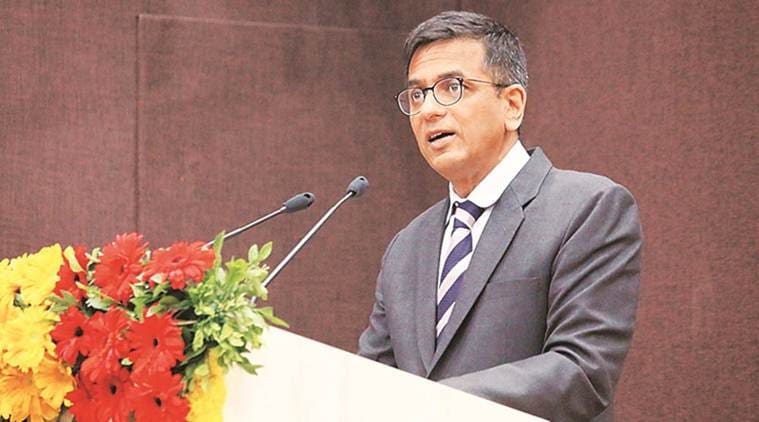 Justice D Y Chandrachud. (File)
Justice D Y Chandrachud. (File)
The Covid-19 crisis has pointed to the need for some assured social security for marginalised sections and effective disbursal of public entitlements, Justice D Y Chandrachud said Sunday.
The Supreme Court judge also underlined the importance of reassessing long-standing Constitutional commitments lest they are lost to market forces in the new global order and the need for the state to recalibrate its regulatory role in a post-liberalised economy where “unchecked private action can…breed several inequities and deprivations”.
He was delivering a lecture on the occasion of the birth centenary celebration of his late father and former Chief Justice of India Justice Y V Chandrachud.
“The lessons from the humanitarian crisis that accompanied the present pandemic demonstrate that the marginalised need to be assured of a minimum form of social security and effective disbursal of public entitlements, now more than ever,” observed Justice Chandrachud.
“An approach for progressive realisation of rights,” he said, “must therefore be devised by a dialogic process that involves all constitutional stakeholders”.
Advocating the need for a changing society to adopt a “dynamic approach” to interpret the “founding Constitutional values of non-discrimination and equality in order to continue to be meaningful”, he said “newer groups on the margins are constantly being discovered” and “are knocking on the doors of the Supreme Court to usher in a new age of inclusion”.
These groups have already waited for 70 years and cannot be asked to wait any longer, he said, adding that “the role of the constitutional courts in this new global order, is that of a partner in a larger dialogue that can transmute cultivated values into law”.
Justice Chandrachud sought to stress that “our Constitution is a tool to achieve the continuing social, political and economic emancipation of all citizens, but it is also a platform for social coordination amongst competing factions within a pluralist society” and “it is these twin roles of the Constitution that lead to strands of both continuity and change within our Constitution”.
“The unlimited festering of economic inequality will be nothing short of a constitutional infirmity,” he said.